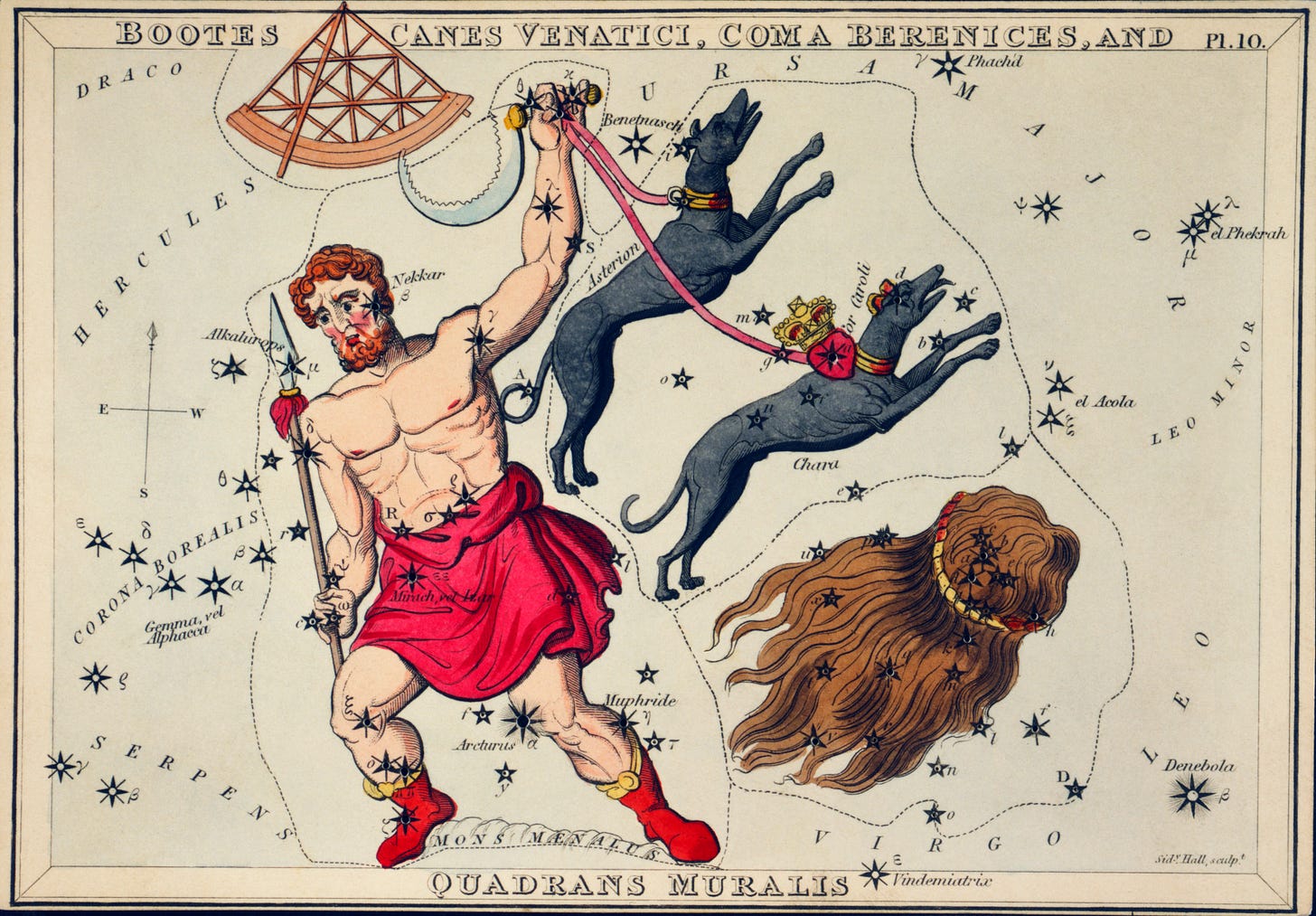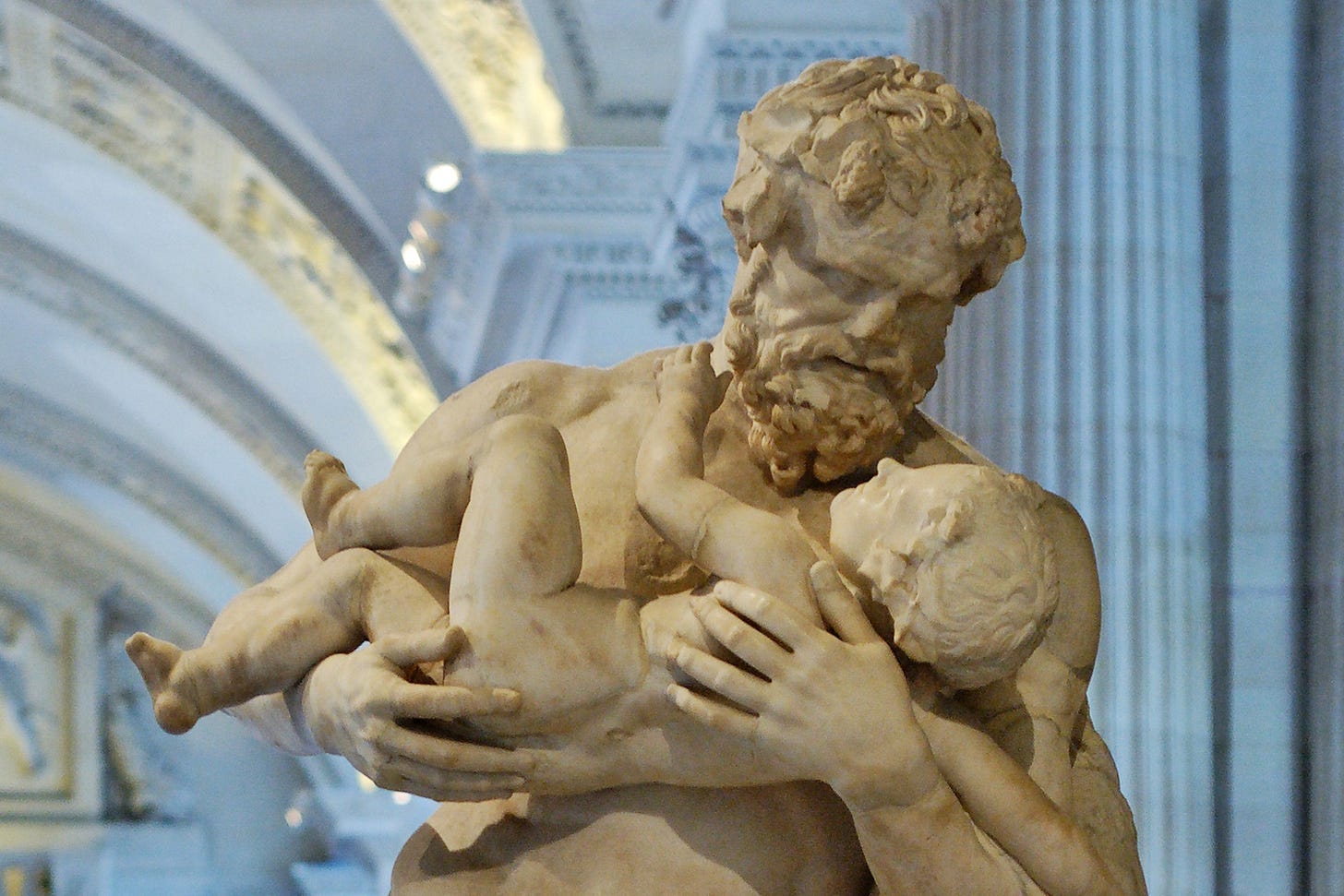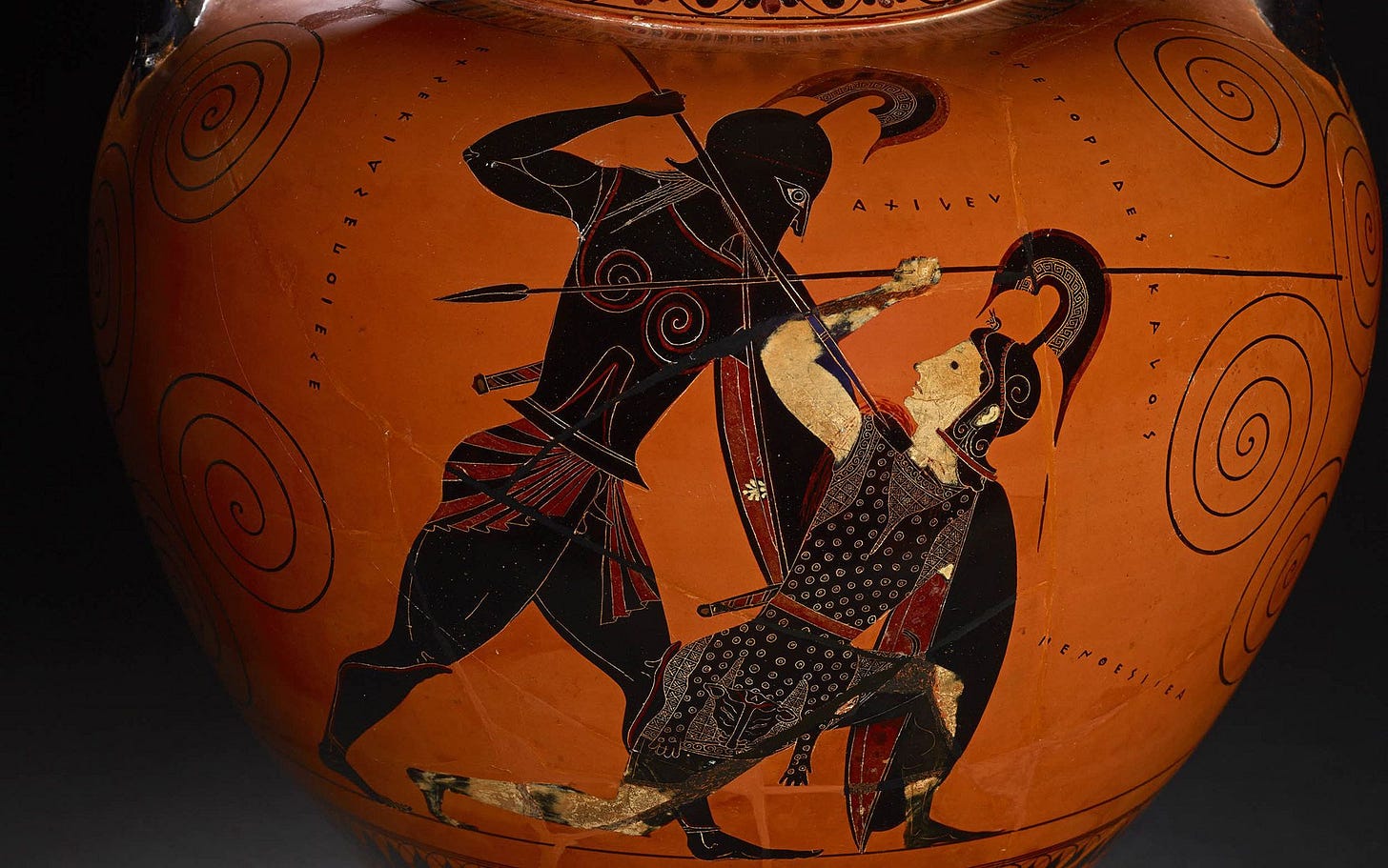Welcome to Episode One of our newest slow read, ARTURO’S ISLAND by Elsa Morante. If you missed it, last week I wrote a not-so-brief, but not as long as it could have introduction to the author. This week we read from page 1 to Immacolatella on page 37 (stop reading at the words “Then, returning to land, desperate, she would have remained on the pier weeping and calling me, until death.”) Here is a complete reading guide, if something isn’t clear feel free to ask for help!
Well then. Shall we?
Between mythology and realism
One of my first glories was my name. I had learned early (he, it seems to me, was the first to inform me) that Arturo—Arcturus—is a star: the swiftest and brightest light in the constellation of Boötes, the Herdsman, in the northern sky! And that this name was also borne by a king in ancient times, the commander of a band of faithful followers: all heroes, like the king himself, and treated by the king as equals, as brothers.
Alberto Moravia used to say that his wife, Elsa Morante, could rewrite Moby Dick keeping all its symbolism and magnificence intact, while also making it clear that she’s talking about a meaningless fish. As you read Arturo’s Island, you want to keep track of the contradictions that seem to coexist on the same page, often in the same sentence, between the lyrical beauty of Arturo’s private world and the harsh truths hiding at the corner of his eye. Take the beginning of the novel: our boy evokes Arthur the northern star, then King Arthur and his Knights—only to swear them off a moment later as childish nonsense.
Despite his wish to be a grow-up, Arturo seems to exist in his own fairy tale dimension. His island is a kingdom of surreal beauty with violence hidden just below the surface, inhabited by blue lizards, giant owls and aloof dugongs. His house is an abandoned monastery made of impossible doors, faded statues and wild greenery; it’s dirty, broken, lonely, and none of it matters because through the mind of a child ugliness and filth can be a fantastic adventure.
My house isn’t far from a small, almost urban square [...] But in my memory it has become an isolated place, and its solitude makes an enormous space around it. There it sits, malign and marvelous, like a golden spider that has woven its iridescent web over the whole island.
La casa dei guaglioni, the “boy’s house”, is a microcosm, an emblem, a metaphor, a cautionary tale all wrapped up in a rusty, broken building. Arturo’s life has been all about the boys (the only female exceptions being his mother’s faded postcard and his late dog, Immacolatella), and the three men that shaped his destiny the most so far, Romeo, Silvestro and especially Wilhelm, carry with them a whiff of magic, a mythical sort of aura.
Romeo the Amalfitano, despite being long dead, has cast a curse that lingers over the house and in the memories of the islanders. His legendary all-male parties carry the flavor of forbidden ancient bacchanals, with musical instruments and fantastical masks that maybe never existed, maybe to this day lay hidden in the closets of private men and their long-suffering wives. Arturo imagines that the boys in the house were brave, noble and true friends like the Knight of the Round Table and all such heroes. To him the Amalfitano with his stick and dogs looks like Boötes the Herdsman, carrying the star Arcturus on his knee like Zeus carried Dyonisus—it’s a far cry from the blind, cantankerous old man people remember. And what about his name? Morante tells us in the first paragraph that names are key to interpret her book, so let’s pay attention to them. Romeo. Isn’t that awfully romantic.
A couple of months after my birth, my father had departed from the island for an absence of almost half a year: leaving me in the arms of our first boy, who was very serious for his age and raised me on goat’s milk. It was the same boy who taught me to speak, to read and write; and then, reading the books I found in the house, I educated myself.
Many readers have compared Arturo to the hero Achilles, and while I don’t disagree, to me he’s also a miniature Dyonisus, the fierce lover of life. And indeed his first nanny, Silvestro—a name that means “wild” or “forest dweller”—evokes the mythical figure of a satyr raising motherless little Bacchus with goat milk (and hiding him like a modern Moses in a pasta crate). These fantastical images seem to effortlessly coexist with the appalling reality of a helpless baby neglected by his family, left to the earnest but inadequate care of a barely older kid.
Finally, there is obvious symbolism to be found in a male wet nurse and a discussion to be had about gender roles and parenting, but we’ll save that for another week: we’ll get to dissect Silvestro further later in the book.
On fathers, beauty and dogmas
But, peering at him from afar, I sought admiration in his gaze, or at least attention, in vain. He sat on the shore taking no notice of me; and when, pretending that I was indifferent to my feats, I casually ran to join him, and collapsed on the sand next to him, he rose capriciously, negligently, eyes distracted and brow wrinkled, as if a mysterious invitation had been murmured in his ear. He raised his arms lazily; he slipped sideways into the sea. And he went off, swimming very slowly, as if embraced by the sea, by the sea as if by a bride.
Who is Wilhelm Gerace? Now that we know what to look for, we should start finding answers textual and metatextual, symbolic and realistic.
To Arturo, his father is the quintessential hero, a Germanic conqueror off on glorious adventures while he’s stuck at home, thwarted by his young age and dark complexion. Wilhelm’s proud attitude and blond curls blend with the natural and fantastical aura of the island until in Arturo’s mind they come to embody the definition of beauty, which is once again physical and metaphysical, a spiritual state of mind, a certain sunlit place of perfect happiness that we can only visit in our childhood.
Wilhelm is also a 30-something selfish scumbag who regularly abandons his son, makes him live in filth and neglect, takes no interest in his education or his physical and psychological needs. He’s a hero in rags, a naked king. Essays can be written about Arturo’s famished loneliness, his romantic mind, his rage and budding inability to express his feelings, and how it all connects to Wilhelm. Hopefully, by the end of the book we will have done just that. Get ready for a textbook father-son conflict that also manages to be most complex and compelling.
I put on the mask again, and resumed my exploration. By now, finding the watch did not mean only the recovery of a treasure: it was no longer only a question of honor. The search had assumed a strange sense of fatality, the time already passed seemed immeasurable, and its end was like a milestone of my fate! I wandered through those varied and fantastic depths, outside of human realms, burning, minute by minute, with that unparalleled hope: of shining, like a prodigy, in the eyes of Him! It was this, the grandiose stake that was in play! And no one to help me, neither angels nor saints to pray to. The sea is an indifferent splendor, like Him.
In passing on his hedonistic life philosophy Wilhelm the atheist has prompted Arturo to accidentally create a whole new religion with his father as the One True God, complete with magical thinking, dogmas and commandments. Father is always right even if His reasons are mysterious, never contradict Him even if He makes you angry, love Him and expect nothing in return.
In my natural happiness, I avoided all thoughts of death, as of an impossible figure with horrendous vices: hybrid, abstruse, full of evil and shame. But, at the same time, the more I hated death, the more fun I had and the more pleasure I got from attempting proofs of daring: in fact, I disliked any game that didn’t include the fascination of risk. And so I had grown up in that contradiction: loving valor, hating death. It may be, though, that it wasn’t a contradiction.
Through Arturo’s earnest Commandments Elsa Morante talks about herself and the philosophy that has guided her life, a fierce love of beauty and rightousness, a passionate hatred for death and decay that she struggled with and ultimately succumbed to. Arturo cannot express that fear out loud; “There is no God,” he declares instead, poor naive thing. But he is a chosen lucky—or unlucky—soul, blessed with a gift for transcendence; even when he’s denied spirituality, such a child will seek it all around himself, it will be misguided, and beautiful as life itself, and ultimately ruinous. Even radiant heroes are mere mortals, and maybe that’s not a contradiction.
I’ve been running this book club for almost a year now, it’s mostly been a failure with the general public and a personal triumph, I wholeheartedly admit it as I write this new entry and bask in the glory of nerding about my favorite books. This blog has turned into such a personal and joyous experience, I’m proud to let it sit here in the wild, and to anyone who has stumbled on my work and was compelled to read the book: I hope you’re loving it as much as I am!
Next week we will finish chapter 1.









I am mesmerized by Arturo’s Island and by your essays. And now I must live up to Elsa Morante’s challenge to understand this book by understanding the meaning of the names. You have endeared me this past year-ish ti Italian literature.
I really enjoy your posts. I’ve read The Leopard and Morante’s History. I’m interested in Italian literature.